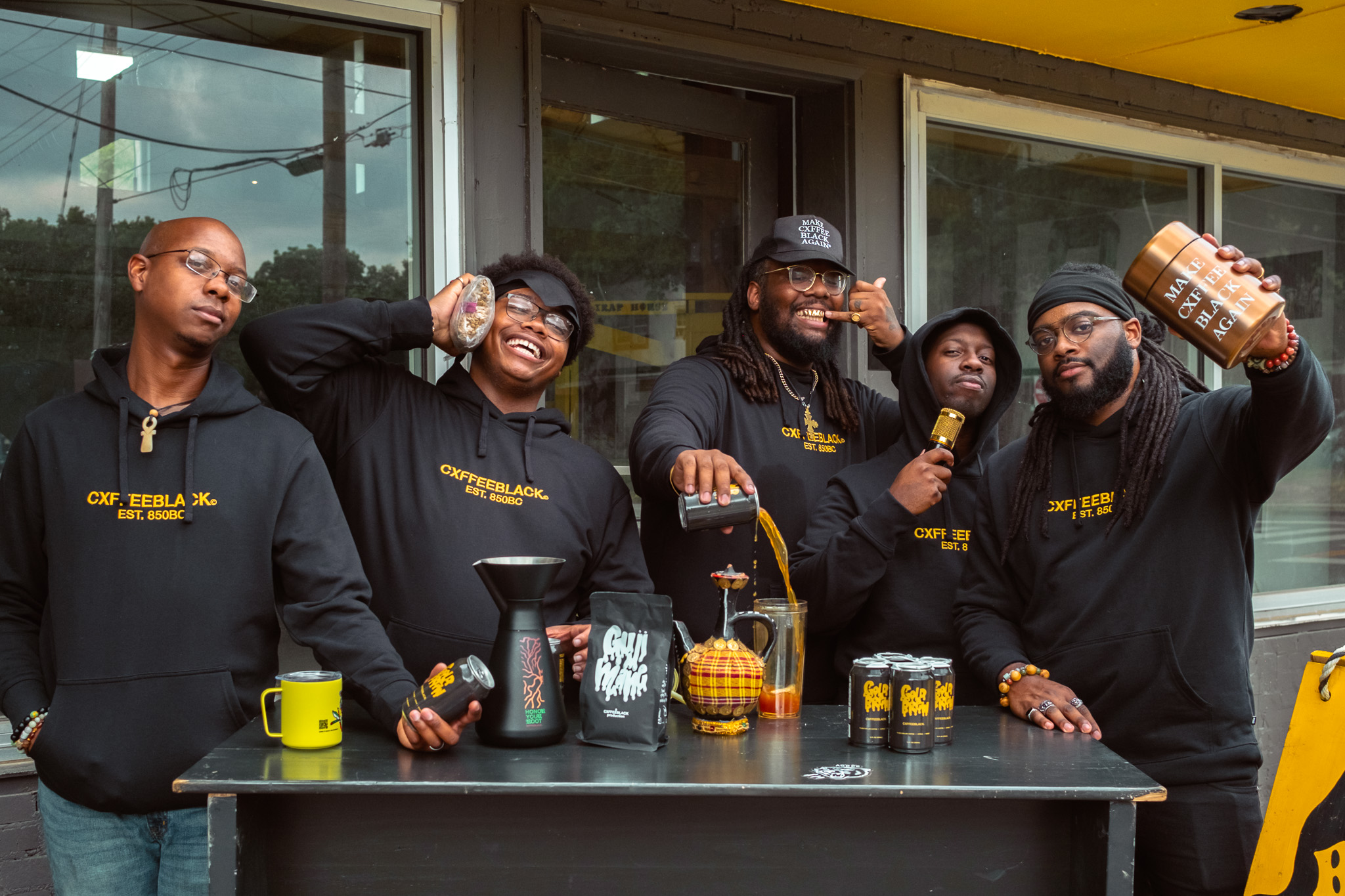NORTH STARS:
Diversity & Inclusion
Community Support
Production & Consumption
“When it comes to coffee, we don’t really have a seat at the table,” said Jones. “Even though we built the table, we’ve got to do the work to create our own narratives.”
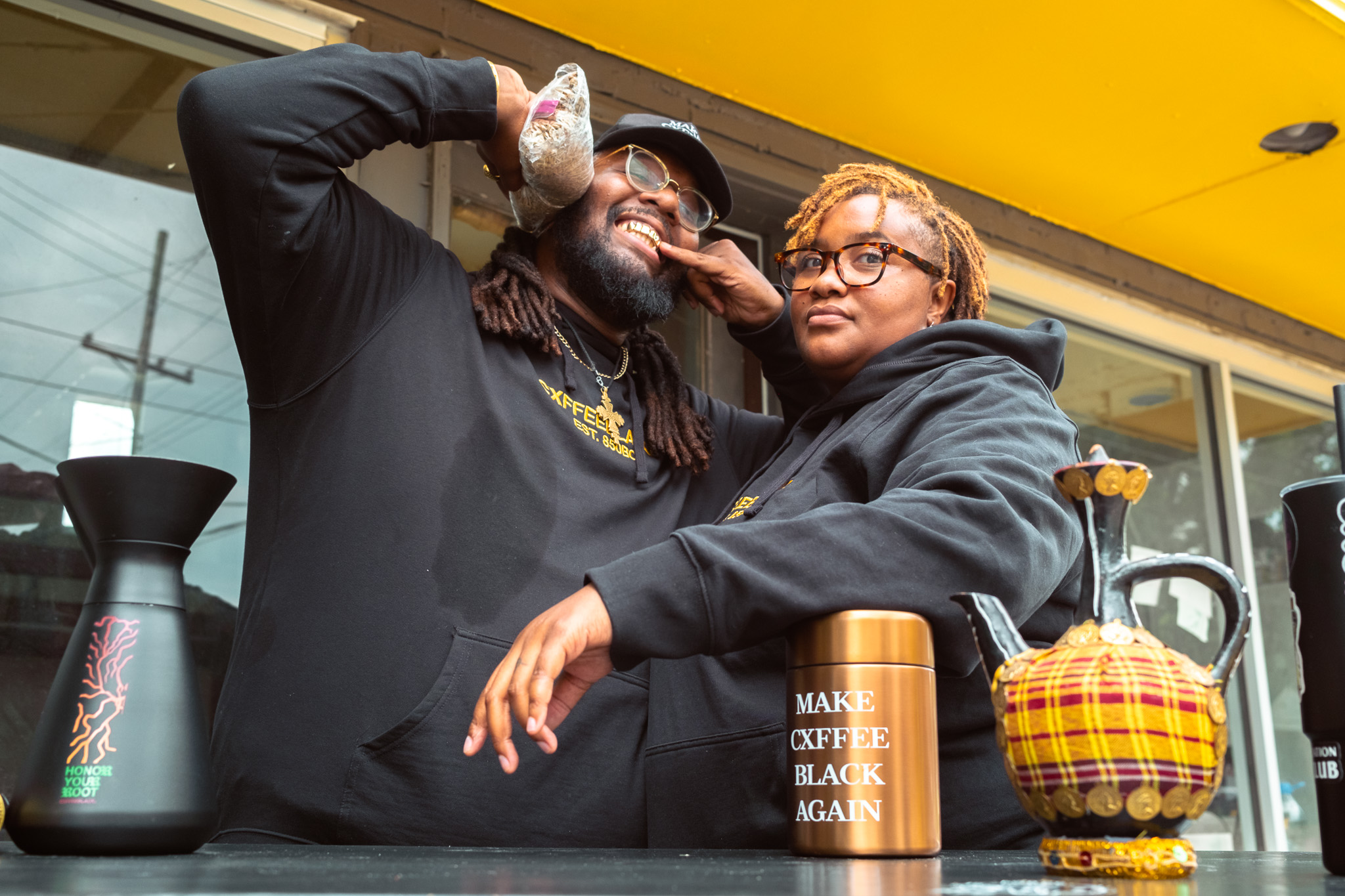
CXFEE founders Bartholomew Jones and Renata Henderson
Reclaiming Coffee’s Black Heritage in Memphis
In the heart of Memphis’ Highland Heights neighborhood, a coffee shop and cultural hub aims to reclaim coffee’s Black heritage. Cxffeeblack, founded in 2019 by husband-and-wife team Bartholomew Jones and Renata Henderson, promotes coffee’s cultural history, which traces back to Africa. As one of the few Black-owned coffee shops in the country, Jones envisioned a space where Black coffee drinkers could share cultural experiences, counteract gentrification, and enjoy high-end specialty coffee — a rarity in Black-owned spaces.
Creating Space for Black Narratives
Jones emphasizes the importance of creating a space where Black culture can be embraced and normalized, while also disrupting the coffee industry. “When it comes to coffee, we don’t really have a seat at the table,” says Jones. “Even though we built the table, we’ve got to do the work to create our own narratives.”
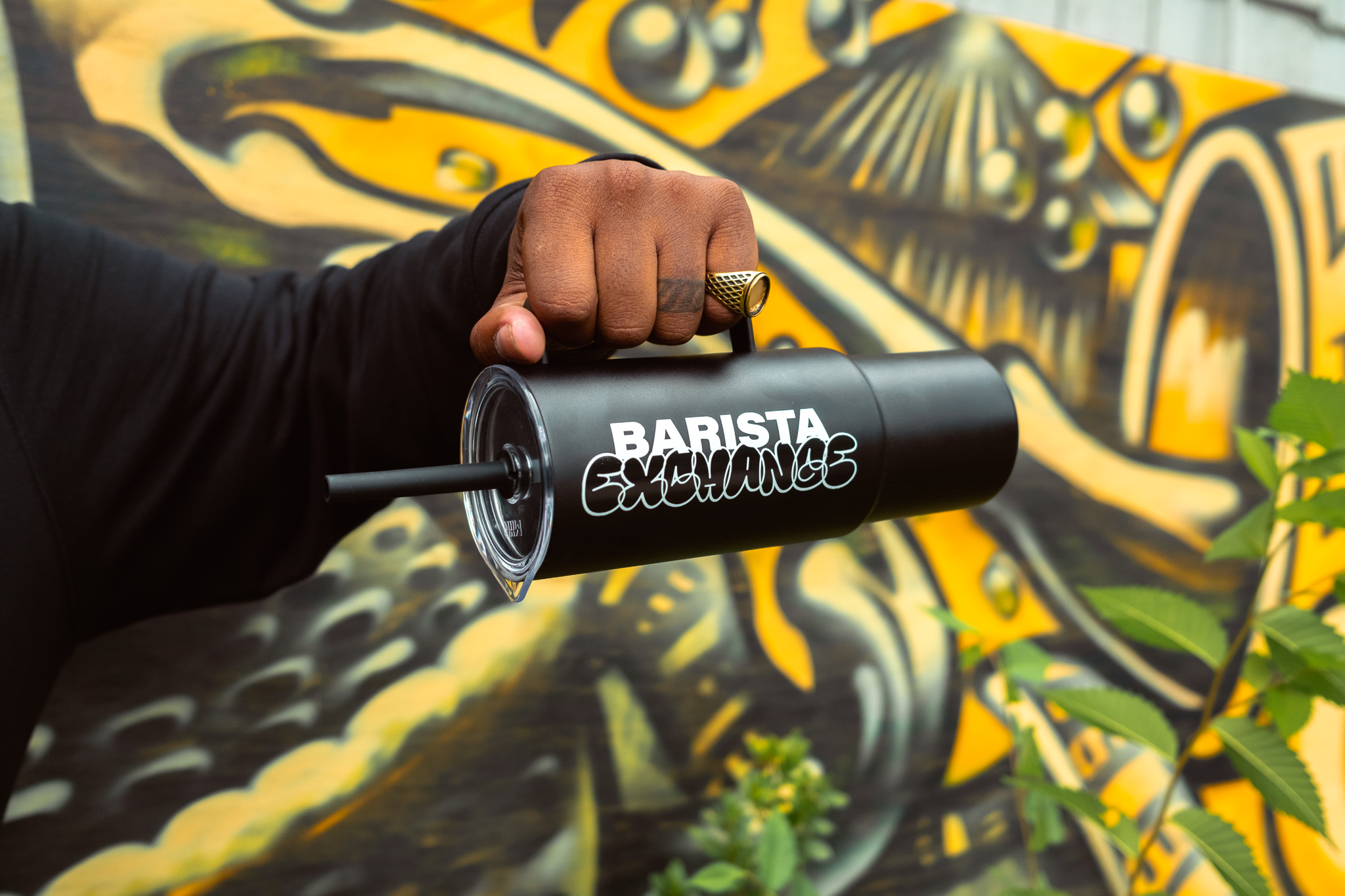
Through the Barista Exchange program, CXFEE sends Black and African baristas to different regions and events to learn more about coffee.
The Journey to Cxffeeblack
Before opening Cxffeeblack, Jones was a home barista and worked at a coffee shop within a skate shop, eventually becoming a barista for several years. During his travels, he often noticed that he was the only Black person in these specialty coffee spaces. Cxffeeblack was born from Jones’ desire to bring a high-caliber coffee experience to Black communities without requiring them to check their culture at the door. Jones describes the shop as a place where customers can discuss extraction theory for a particular Kenyan Peaberry coffee while staff expertly pulls espresso shots in the middle of the neighborhood.
“You can fully embrace that duality without having to prove you’re culturally worthy of having this culinary conversation,” says Jones. “We’ve always been culinary. We’re just in a space now where we’re gaining the fluency and vocabulary to code-switch seamlessly.”
Changing Coffee Consumption Trends
Ten years ago, Black Americans were the lowest coffee-consuming ethnic group in the country, according to the National Coffee Association. That trend has shifted; as of 2024, a new report shows that Black coffee drinkers are now the fastest-growing coffee-consuming ethnic group in the United States. While many older generations associated coffee with brands like Folgers, younger generations are more open to exploring specialty coffee. Jones attributes this growth to leveraging the Black dollar and creativity within the coffee industry.
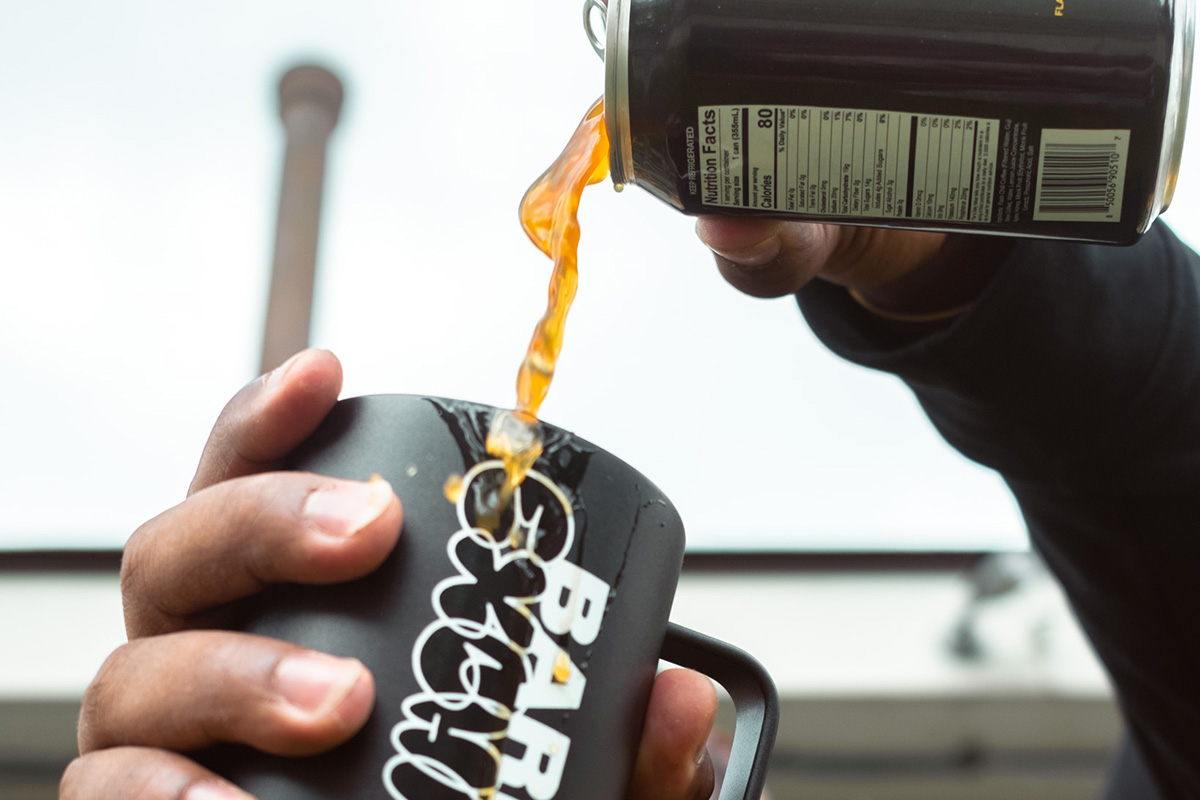
CXFEE aims to return coffee to its African roots
Building an All-Black Supply Chain
Recognizing the lack of investment in Black-owned establishments, Jones is committed to ensuring that money spent on coffee stays within Black communities. He credits Martin Mayorga of Mayorga Organics with opening his eyes to the reality that many coffee companies are remnants of neocolonial corporations, some founded as far back as 1616 by the Dutch during the transatlantic slave trade. Jones realized he couldn’t, in good conscience, support Black communities while selling products from these companies. Coffee is a $490 billion industry, yet less than 1% of its profits go to Africa— the continent where coffee originated and whose people grew it into a global commodity through forced labor.
Determined to avoid supporting colonial structures, Jones built an all-Black supply chain, sourcing coffee directly from Ethiopia to ensure profits stay within Black communities. “When my customers spend money with me, or when I purchase coffee, I know the money is going to Black hands,” says Jones.
“We have to think intentionally about how we’re spending our money, supporting infrastructure that moves us toward liberation. That means creating independence, not just for coffee producers but also for the supply chain that brings coffee to market,” says Jones.
Partnering with Ethiopian Suppliers
This vision took Jones to Ethiopia, the only African country never colonized, to build his supply chain. He partnered with African exporters and African American importers, bringing his first half-container of coffee to Cxffeeblack this year. While he acknowledges the challenges of growth, Jones remains committed to ensuring that growers, importers, exporters, roasters, and baristas are Black. This, he believes, is a meaningful step toward equity in the coffee industry.
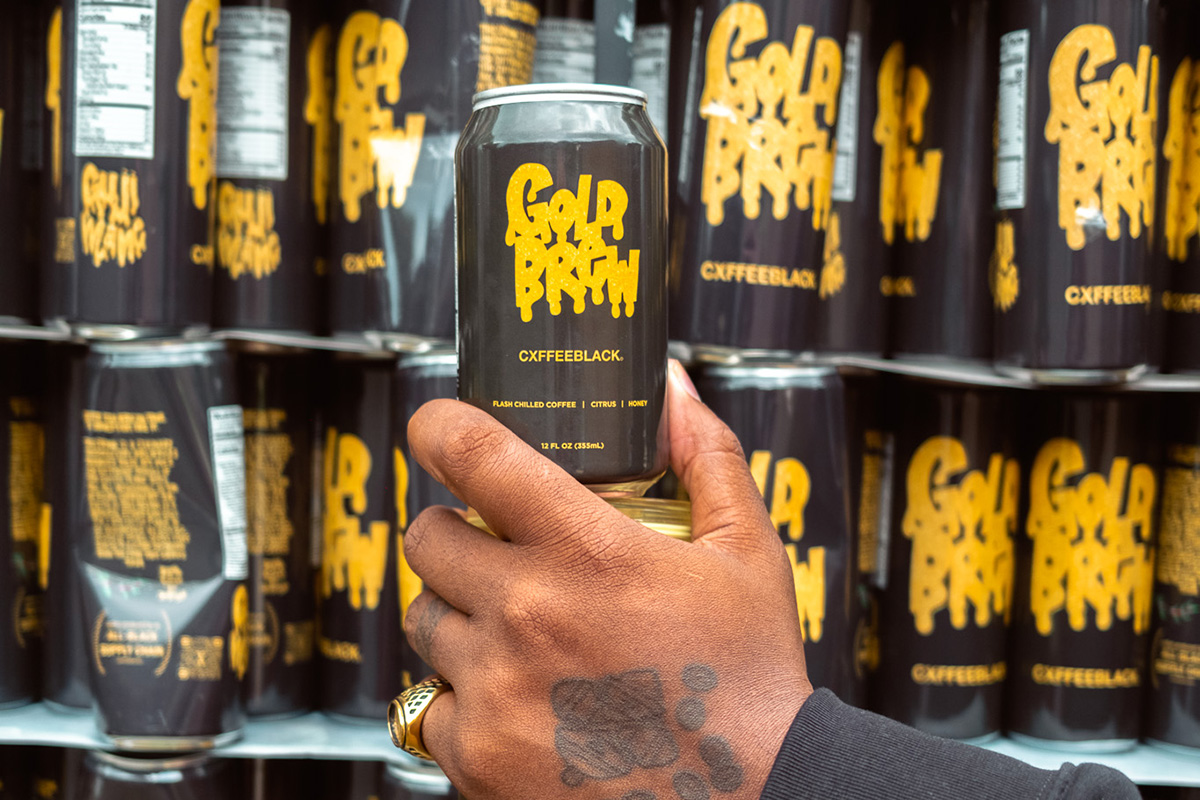
Honey-sweetened cold brew is just one of CXFEE’s many offerings
Innovating for Coffee’s Future
Jones also highlights the importance of cultural authenticity and innovation in addressing coffee’s environmental challenges. Studies suggest Arabica coffee faces a steep decline in production due to climate change, deforestation, and disease. Highly sensitive to temperature fluctuations, Arabica requires specific climatic conditions to thrive. By 2050, suitable growing areas could shrink significantly as rising temperatures and altered rainfall patterns take their toll.
To this end, Jones advocates for introducing additional coffee species and investing in sustainable production to preserve coffee’s future. He launched a barista exchange program to connect coffee professionals with producers across Africa. This initiative fosters dialogue about coffee and promotes the necessary changes to ensure its survival.
“I think it’s important,” says Jones. “That’s the work we have to do. Like we say, if you don’t honor your roots, one day you’ll look up and there won’t be any fruit.”
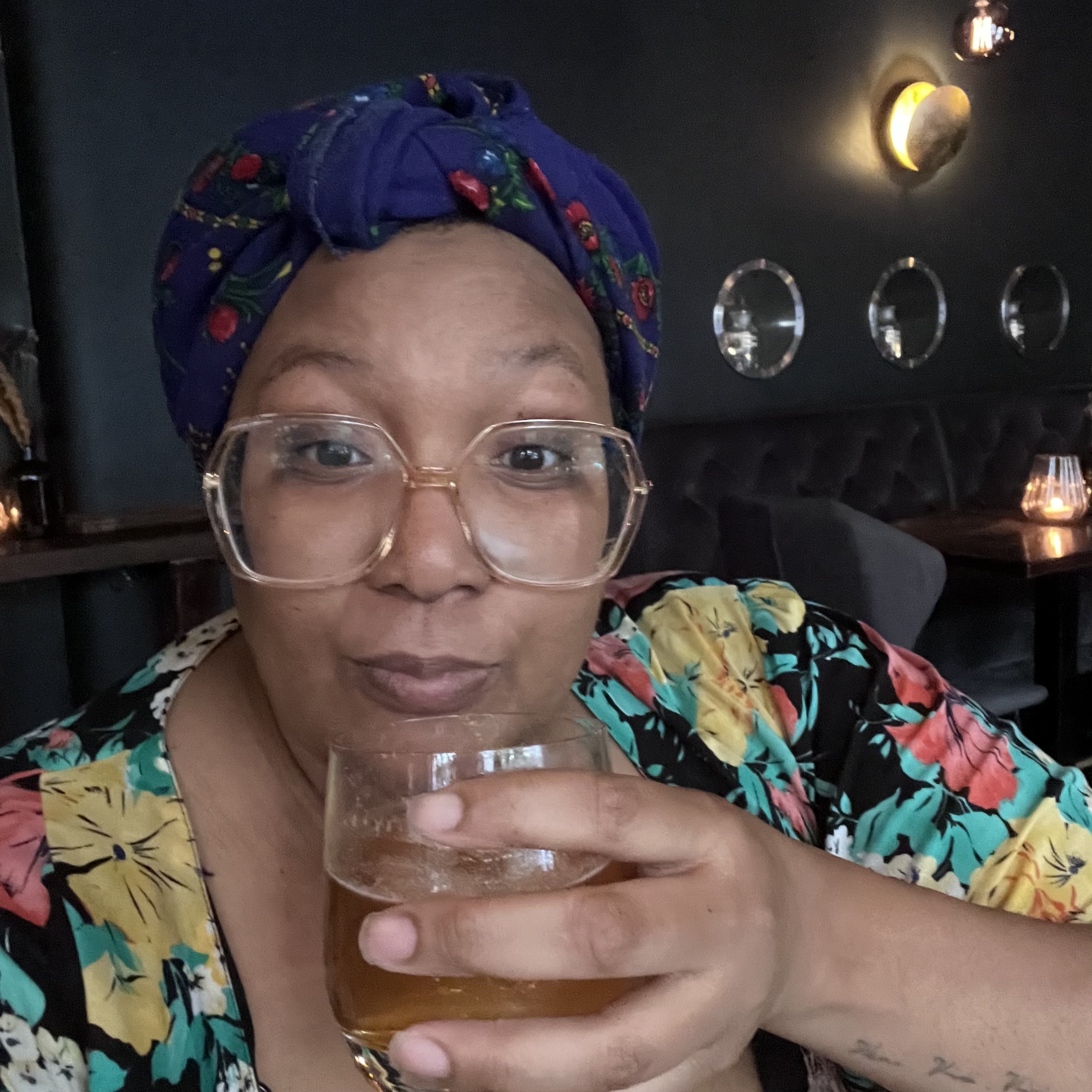
Yolanda Evans is an award-winning freelance writer with more than 18 years of experience covering dining, cocktails, travel, and lifestyle. She’s based in Berlin, Germany and her work has appeared in Trip Advisor, The Essentialist, The Smithsonian, Good Beer Haunting, CNN, Travel + Leisure, Architectural Digest, Toronto Star, Food & Wine, Afar, Here Magazine, AARP, Sweet July, Washington Post, Imbibe, Vinepair, Shondaland, Punch, Wine Enthusiast, Lonely Planet, Thrillist just to name a few.
North Stars: Community Support, Diversity & Inclusion, Production & Consumption


